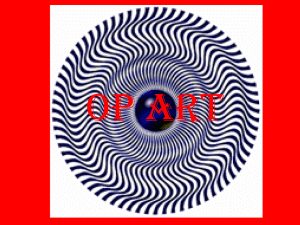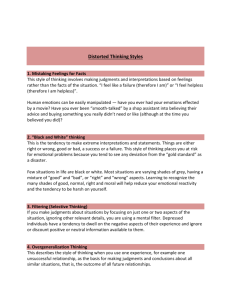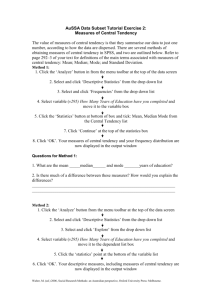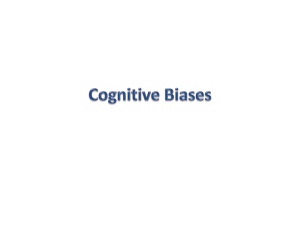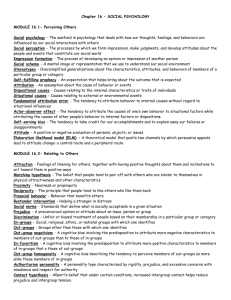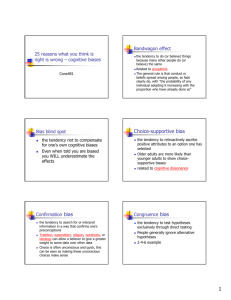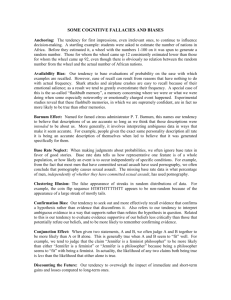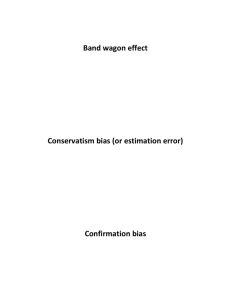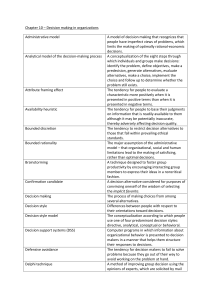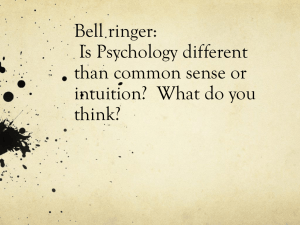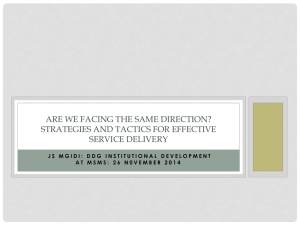COGNITIVE BIASES - albert louis peia
advertisement
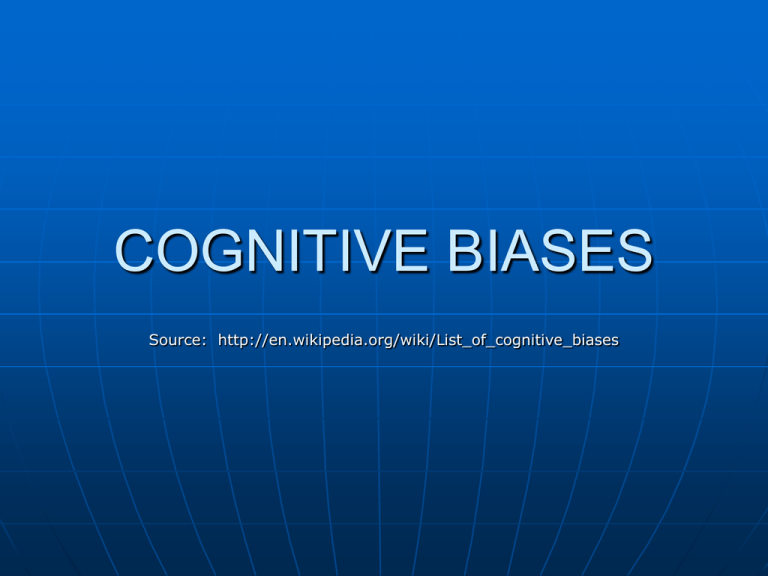
COGNITIVE BIASES Source: http://en.wikipedia.org/wiki/List_of_cognitive_biases Decision-Making and Behavioral Biases Bandwagon effect — the tendency to do (or believe) things because many other people do (or believe) the same. Choice-supportive bias — the tendency to remember one's choices as better than they actually were. Confirmation bias — the tendency to search for or interpret information in a way that confirms one's preconceptions. Congruence bias — the tendency to test hypotheses exclusively through direct testing, in contrast to tests of possible alternative hypotheses. Mere exposure effect — the tendency for people to express undue liking for things merely because they are familiar with them. Omission bias — The tendency to judge harmful actions as worse, or less moral, than equally harmful omissions (inactions). Von Restorff effect — the tendency for an item that "stands out like a sore thumb" to be more likely to be remembered than other items. Biases in Probability and Belief Anchoring — the tendency to rely too heavily, or "anchor," on one trait or piece of information when making decisions. Gambler's fallacy — the tendency to assume that individual random events are influenced by previous random events. For example, "I've flipped heads with this coin so many times that tails is bound to come up sooner or later." Observer-expectancy effect — when a researcher expects a given result and therefore unconsciously manipulates an experiment or misinterprets data in order to find it Social Biases Actor-observer bias/ fundamental attribution error — the tendency for explanations for other individual's behaviors to overemphasize the influence of their personality and underemphasize the influence of their situation. This is coupled with the opposite tendency for the self in that one's explanations for their own behaviors overemphasize their situation and underemphasize the influence of their personality. Just-world phenomenon — the tendency for people to believe that the world is "just" and therefore people "get what they deserve." Lake Wobegon effect — the human tendency to report flattering beliefs about oneself and believe that one is above average Self-fulfilling prophecy — the tendency to engage in behaviors that elicit results which will (consciously or subconsciously) confirm our beliefs. Trait ascription bias — the tendency for people to view themselves as relatively variable in terms of personality, behavior and mood while viewing others as much more predictable.
